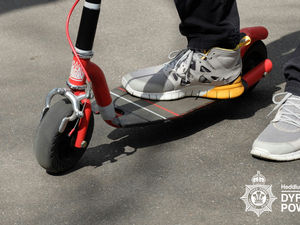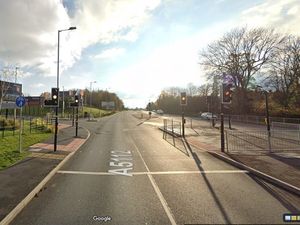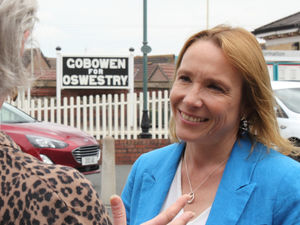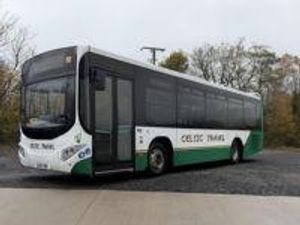MP hits out at Covid rule confusion on England-Wales border
Plans for Welsh trains to require passengers to wear face coverings and English trains to leave it up people's own judgement are "another example" of confusion between the countries, according to a Shropshire MP.
Daniel Kawczynski, the Conservative MP for Shrewsbury & Atcham, said he was concerned at the impact differing rules between England and Wales have had on border communities during the pandemic.
He said the latest policy where Transport for Wales will require passengers to wear face masks on its trains – whether in Shropshire or Mid Wales - is "another example of the confusion" being experienced by border communities.
The legal requirement to wear a covering on public transport is being ended in England next week as Boris Johnson's government eases restrictions.
This means transport providers and regional authorities in England are left to set their own rules, with some areas like London keeping face coverings compulsory on the Tube, buses, trams and trains.
Meanwhile in Wales, where coronavirus rules are set by the devolved Labour government, the legal requirement to wear a face covering is staying in place.
Rather than ask people to put a mask on as trains cross the border, Transport for Wales has said it will ask people to wear a covering on all of their services even if the whole journey is in England - for example from Gobowen to Telford.
"We have had serious, very peculiar situations arising about the border," Mr Kawczynski said.
"Communities able to go for a drink on one side and not the other, being able to play golf but not if the course crosses into Wales. What do you do there?"
He added: "I feel very strongly that we should be looking at ways in which to minimise the differences between our communities rather than accentuating them."
Mr Kawczynski was speaking after public transport operators outlined their differing plans on the use of face masks once Covid restrictions are lifted in England on July 19.
A Transport for Wales spokesman said: "Transport for Wales fully supports the advice from Welsh Government and would like to reinforce the message that within Wales face coverings must be worn on public transport, unless exempt.
“We will also continue to ask passengers to wear face coverings on Transport for Wales services which have part, or all, of their journey in England.
“The risk of catching Covid-19 on public transport remains low and we would like to thank customers for helping to keep themselves, fellow passengers and our staff safe by following this advice.”
Meanwhile, West Midlands Railway said it would follow guidelines set by the Rail Delivery Group (RDG) and only ask people to wear a face covering if an indoor setting is "busy".
An RDG spokesman said: "Rail companies will ask people to follow the government guidance and, out of respect for others, wear face coverings if an indoor setting is busy. Train travel is low risk, with the majority of carriages well ventilated by air conditioning systems or by doors and windows. As restrictions lift, we will continue carrying out extra cleaning and providing better information about how busy services are, so that our passengers can travel with confidence.”
Arriva Bus suggested it would follow guidance from the Confederation of Passenger Transport (CPT), which said passengers would not be forced to wear face coverings in Shropshire and Telford & Wrekin.
Tom Bartošák-Harlow, head of external relations at CPT, said: "We expect that many people, especially in busy places, will follow the Prime Minister’s call to continue to wear a face covering as a courtesy to others. Passengers though will find it difficult to understand why the Prime Minister has singled out public transport as somewhere to wear a face covering when a range of other activities share its characteristics.
“We now need to see clear guidance for operators and customers but, in the absence of regulations, it is important that we respect everyone’s right to choose whether to wear a face covering.
“The industry is doing everything it can to ensure people can travel with confidence. Operators will continue to deliver enhanced cleaning regimes, ensure buses are well ventilated and provide tools such as apps to allow customers to see how busy their bus is and help plan their journey in advance."




